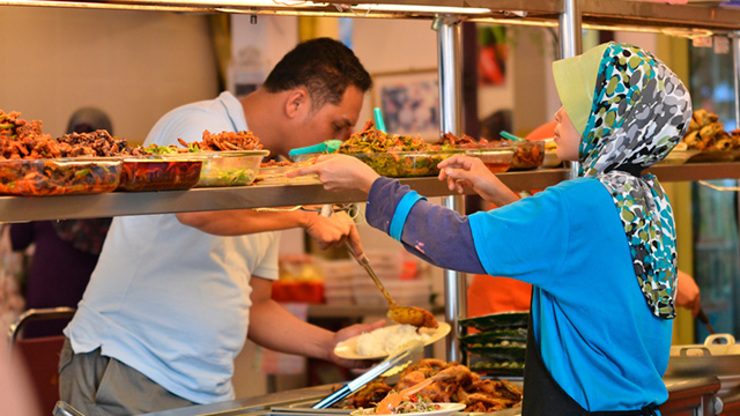SUMMARY
This is AI generated summarization, which may have errors. For context, always refer to the full article.

MANILA, Philippines – The Philippine delegation to the biggest Halal exhibition in the Middle East eyes the help of the Organization of the Islamic Conference (OIC) to help develop the country’s Islamic economic affairs.
Part of the delegation’s agenda in the 3rd OIC Halal Middle East 2014 is to learn best Halal industry practices of different OIC-member countries.
The annual event, touted as “the only exhibition of its kind” in the Middle East, will run from December 8 to 10 at the Expo Centre Sharjah, United Arab Emirates and showcases industries adhering to the Halal-standard – from pharmaceuticals, services, ingredients, to banking.
The county needs to tap expertise from the OIC to improve its industries which adhere to the sharia, said Aleem Siddiqui Guiapal, bureau director of the National Council on Muslim Filipinos’ (NCMF) economic affairs.
“We’re facilitating the delegation of the Philippines which would be headed by (NCMF) Secretary Yasmin Lao,” Guiapal told Rappler.
No PH Islamic economic blueprint
The lack of an Islamic economic blueprint in the Philippines is one of the concerns which the NCMF wants to address, as it is a disadvantage to the country.
More than half of the world’s Muslim population come from Southeast Asia, and with the incoming integration of economies in the region in 2015, the Philippines will have to deal with its dearth of halal industries. This is likely because Muslim tourists will likely skip the Philippines, as other neighboring countries like Malaysia are far more compliant to the sharia.
The Philippines has only 3 accredited halal-certifying bodies, according to Muslim Filipino consumer watchdog Alliance for Halal Integrity in the Philippines.
The lone Islamic financial body in the country – the Al-Amanah Islamic Investment Bank of the Philippines – also needs technical help from the OIC, said Guiapal.
The lone Islamic bank has been operating since 1974 and has suffered losses. In 2012, it said it was looking for a strategic partner as it has struggled to sustain its operations amid a reported loss of P30.6 million ($680,757.28*).
“We have experts but no institutional expertise to run an Islamic bank,” Guiapal said.
In contrast to commercial banks, Al-Amanah does not collect interest and is not permitted to transact investments involving alcohol, gambling, and pork. It has been deemed important in financing small businesses especially in the Autonomous Region in Muslim Mindanao (ARMM).
The assets of lslamic financial institutions around the world rose to $1.8 trillion between 2003 and 2013, according to estimates from the International Monetary Fund, the World Bank, and other global economic bodies.
The NCMF did not disclose though how much committed investments it expects to bring home to the Philippines. “We’re focused on the technical sharing between the NCMF and the Dubai Islamic Economy Development Center,” Guiapal said. – Mick Basa / Rappler.com
*$1 = P44.95
Add a comment
How does this make you feel?
There are no comments yet. Add your comment to start the conversation.